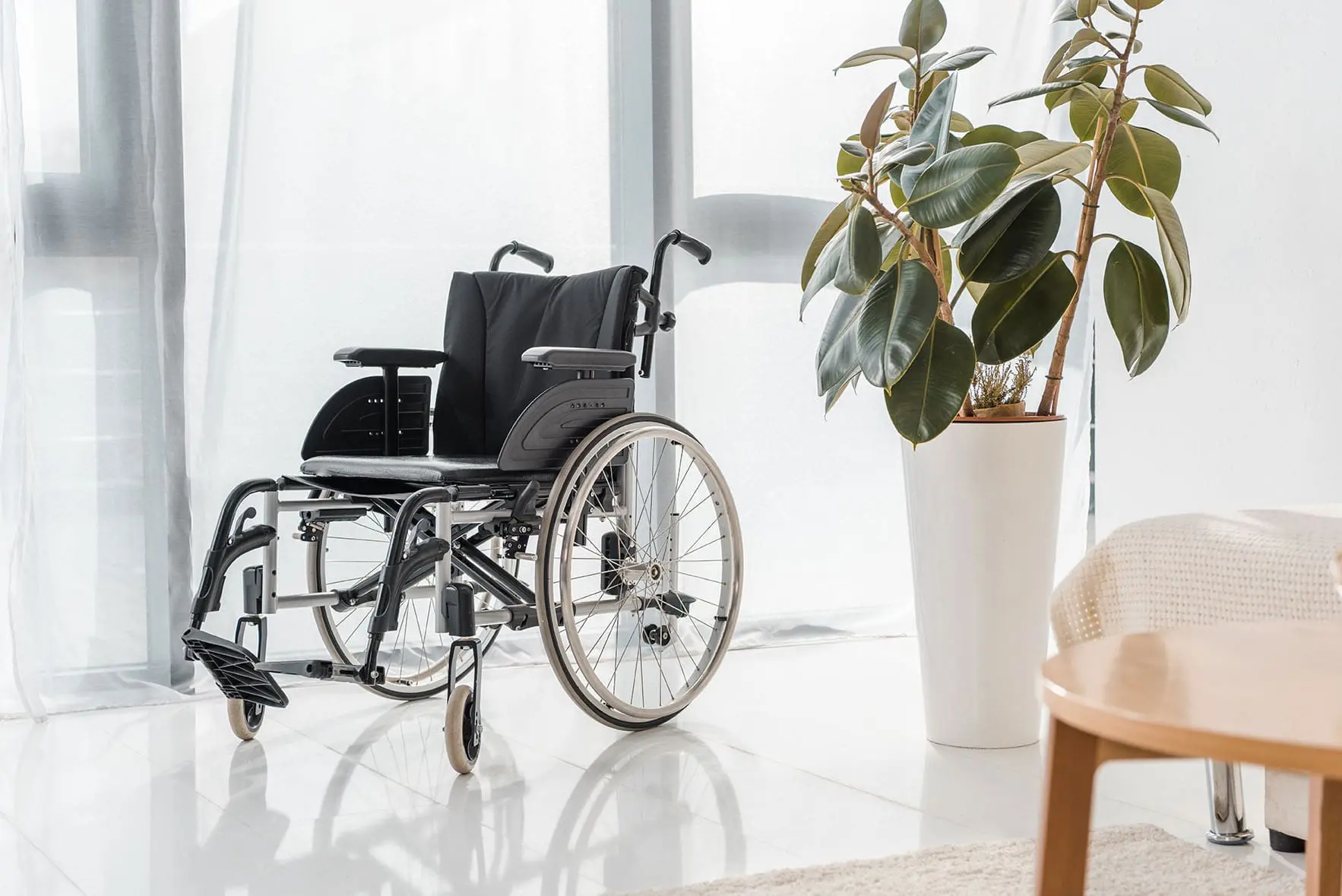Physical abuse in nursing homes refers to any intentional use of force that causes injury, pain, or impairment in a nursing home setting. It can take many forms. The ones most often seen include hitting, slapping, pinching, inappropriate use of restraints, pushing, or rough handling.
Even when caregivers claim it was accidental, repeated or unexplained injuries are red flags. Relatives should keep an eye on their elders in institutional settings. At Munley Law, we recognize the profound trauma that physical abuse in residential care can cause to both seniors and family members and we are here to help address this shocking and unacceptable issue.
Common Warning Signs of Physical Abuse in PA Nursing Homes
Families visiting loved ones in nursing homes should be on the lookout for behaviors and symptoms that may indicate mistreatment. Look for patterns rather than isolated occurrences. Key warning signs include:
- Unexplained Bruises, Cuts, or Fractures: Frequent bruising in protected areas like the upper arms, back, or thighs raises concern. Broken bones and other serious injuries require attention and investigation.
- Sudden Changes in Behavior or Mood: Residents may become withdrawn, fearful, or anxious around staff. A once-outgoing loved one may seem unusually quiet, frightened, or hesitant to speak up. Note any mental health concerns that have arisen.
- Unexplained Weight Loss or Malnutrition: Physical abuse often coincides with neglect. Weight loss and signs of malnutrition may also indicate that neglect is occurring.
- Signs of Restraint Misuse: Improper or overly tight restraints can cut off circulation or cause bruising. Look for rope marks, indentations, or limited movement that isn’t medically justified.
- Staff Explanations Don’t Add Up: Vague or inconsistent stories about how residents sustained injuries can be a key sign. Look out for repeated explanations like “they just fell” when falls are improbable. Naturally, depending on a resident’s cognitive abilities, you may also ask them to explain the cause of their injuries.
- Sudden Falls in Health or Function: Physical mistreatment could be a factor if a resident’s physical or cognitive abilities decline abruptly. Keep an eye on rapid deterioration or cognitive decline without a medical cause.

How Physical Abuse Happens in Nursing Homes
Research indicates abuse in nursing homes isn’t uncommon. Two out of every three nursing home staff members report engaging in some form of abuse in a given year. Understanding how physical abuse occurs can help you identify systemic issues within a facility. Common contributing factors include:
- Staffing Shortages: Overworked caregivers in nursing homes may lose patience or resort to roughness.
- Inadequate Training: Untrained or underqualified staff might mishandle residents or fail to follow safe protocols.
- Lack of Oversight: Poor supervision or accountability allows abuse to continue unchecked.
- Neglect of Reporting: A facility that discourages or ignores incident reports fosters an unsafe environment.
At Munley Law, we believe shining a light on these systemic failures is vital to holding facilities and staff members accountable and ensuring your loved one’s wellbeing. If you have any concerns about the safety of nursing home or assisted living residents, don’t hesitate to seek legal support.
Immediate Steps to Take If You Suspect Abuse in PA Nursing Homes
Signs of physical abuse among older persons in nursing homes or other community settings are alarming. Acting promptly is essential when you suspect physical elder abuse. Recommended first steps include:
- Document Everything: Write down dates, times, descriptions of injuries, witness names, and any explanations staff members offer. Photographs of physical injuries can also help strengthen a case.
- Report Concerns Internally and Externally to Proper Authorities: Notify the facility’s administration about your concerns. You should report to your state’s long-term care ombudsman or adult protective services as well. Call 911 if imminent or immediate danger exists.
- Seek Immediate Medical Attention: Make sure your loved one sees a doctor promptly to address injuries and obtain medical documentation.
- Consult a Lawyer: Contact Munley Law as soon as possible. Early legal advice helps preserve evidence, follows the appropriate timeline, and builds a stronger claim.
Legal Protections for Victims of Nursing Home Abuse
People living in nursing homes and their relatives have rights. For specific information, talk to an expert at Munley Law. The following points address several of the general and most important legal protections for nursing home residents in Pennsylvania:
- Rights of Residents: Under federal and state law, residents have a right to safe, respectful, and dignified care. Abuse or neglect violates those rights and may be grounds for legal action.
- Regulatory Framework: Facilities must comply with standards set by Medicare, Medicaid, and health departments. Abuse can result in fines, license revocation, and criminal charges.
- Civil Remedies: Victims and their families can pursue civil claims, seeking compensation for pain and suffering, medical bills, rehabilitation costs, and other damages, including emotional distress.
- Criminal Liability: In many states, physical abuse of a vulnerable adult is a criminal offense. Prosecutors can file charges against both the facility and individual staff members.
In Pennsylvania, nursing home abuse falls under the state’s Older Adults Protective Services Act, which provides additional safeguards for residents. Pennsylvania law requires mandatory reporting of suspected abuse within 24 hours to the Department of Aging’s protective services hotline at 1-800-490-8505.
The state maintains strict licensing requirements for nursing facilities through the Department of Health, and violations can result in civil monetary penalties ranging from $1,000 to $10,000 per day. Pennsylvania residents also benefit from a two-year statute of limitations for personal injury claims related to nursing home abuse, though the discovery rule may extend this timeframe if abuse was concealed.
Pennsylvania’s Long-Term Care Ombudsman program provides free advocacy services to nursing home residents and families, and the state’s Adult Protective Services can conduct immediate investigations when abuse or nuring home neglect is reported. Under Pennsylvania law, facilities that fail to report suspected abuse may face additional penalties. The state maintains a public database of nursing home inspection reports and violations on the Department of Health’s website.
What to Expect When You Work with Munley Law
We have over 60 years of experience with nursing home abuse cases. Munley Law takes a compassionate and personal approach to handling sensitive claims. You can expect:
- An initial no‑cost consultation to review your situation.
- Prompt investigation and preservation of all relevant documentation.
- Regular updates throughout the legal process.
- A team that communicates clearly and treats your family with respect.
In various types of personal injury cases, we’ve secured millions of dollars for our clients. Sometimes, we settle cases with the insurance company. However, as our case results indicate, when the insurance company won’t offer a fair settlement, we’re able to successfully convince a jury to award damages in court.
We’re dedicated to helping older adults and their families pursue justice when abuse occurs. Our fee is a percentage of the compensation we recover for a client, meaning a client only owes legal fees if they win their case.
Frequently Asked Questions
Q: How long do I have to file a lawsuit?
A: As mentioned above, you generally have two years from the date the abuse occurred or was discovered to file a lawsuit for physical injuries, emotional distress, or other personal injuries resulting from nursing home abuse.
Q: Can I sue even if my loved one has Alzheimer’s or dementia?
A: Yes. The law protects all residents, regardless of cognitive condition. In many cases, family members (guardians or conservators) can file on behalf of the resident.
Q: Will going to court scare the facility into settling?
A: Absolutely. Facilities face pressure from regulators, insurers, and public scrutiny. A credible lawsuit often leads to fair settlements and faster action.
Q: Can staff face criminal charges in addition to a civil lawsuit?
A: Yes. Civil actions don’t prevent criminal investigations. We can collaborate with law enforcement when needed.

Munley Law – Advocates for Victims of Nursing Home Physical Abuse in Pennsylvania
No one should live in fear of harm in environments where they deserve care and respect. Reach out if you’ve seen signs of physical abuse or inadequate cae in a nursing home or assisted living facility. Munley Law’s attorneys are ready to support you and help you move forward. Get started by contacting us today for a free consultation.









